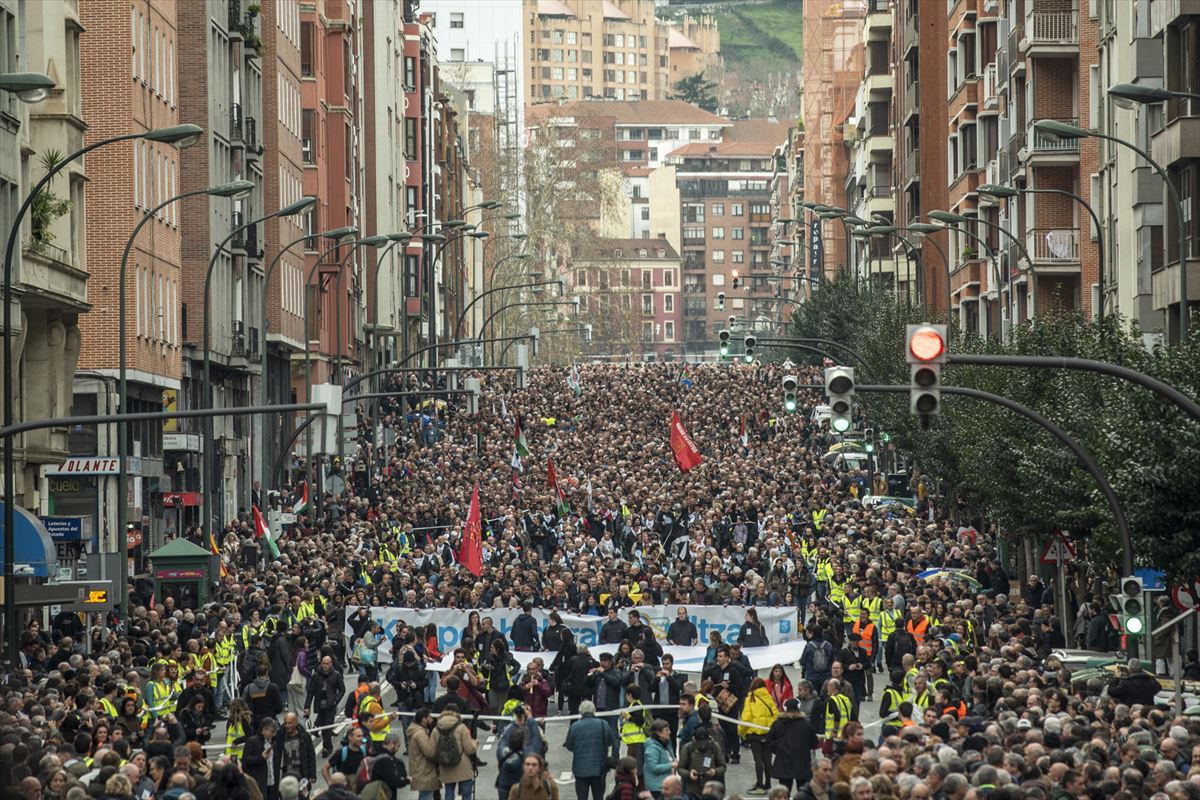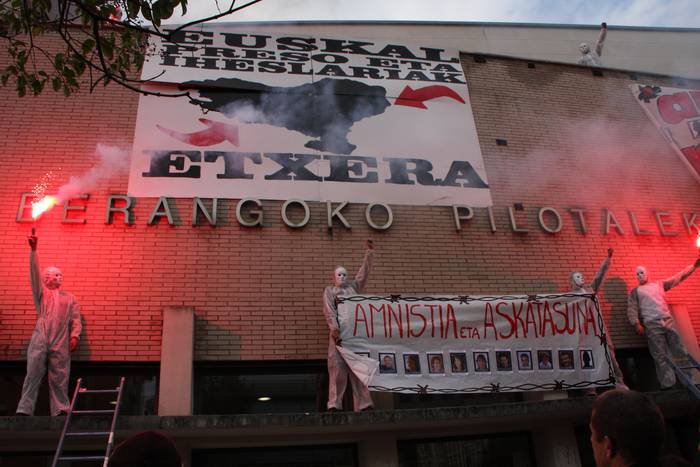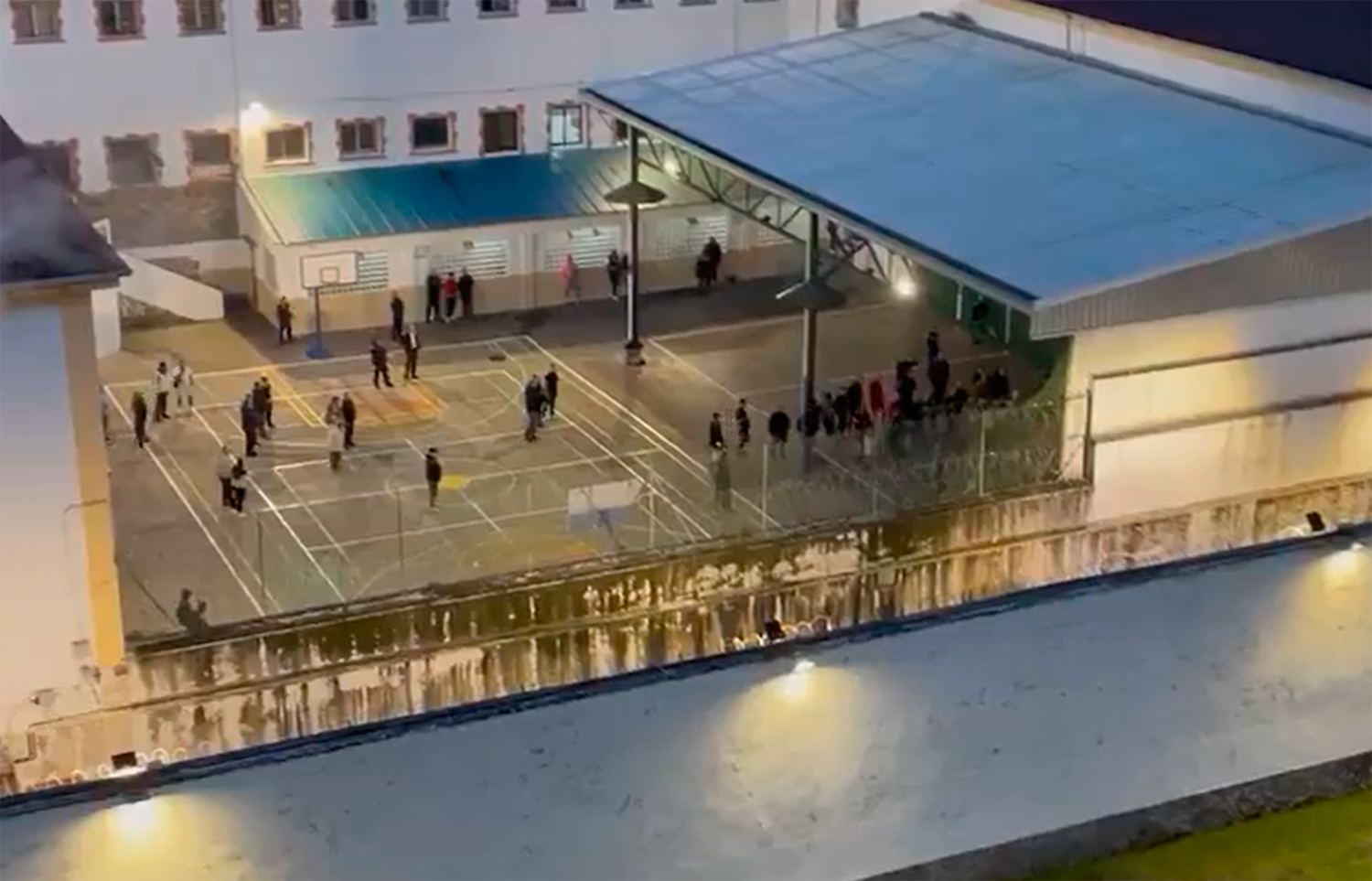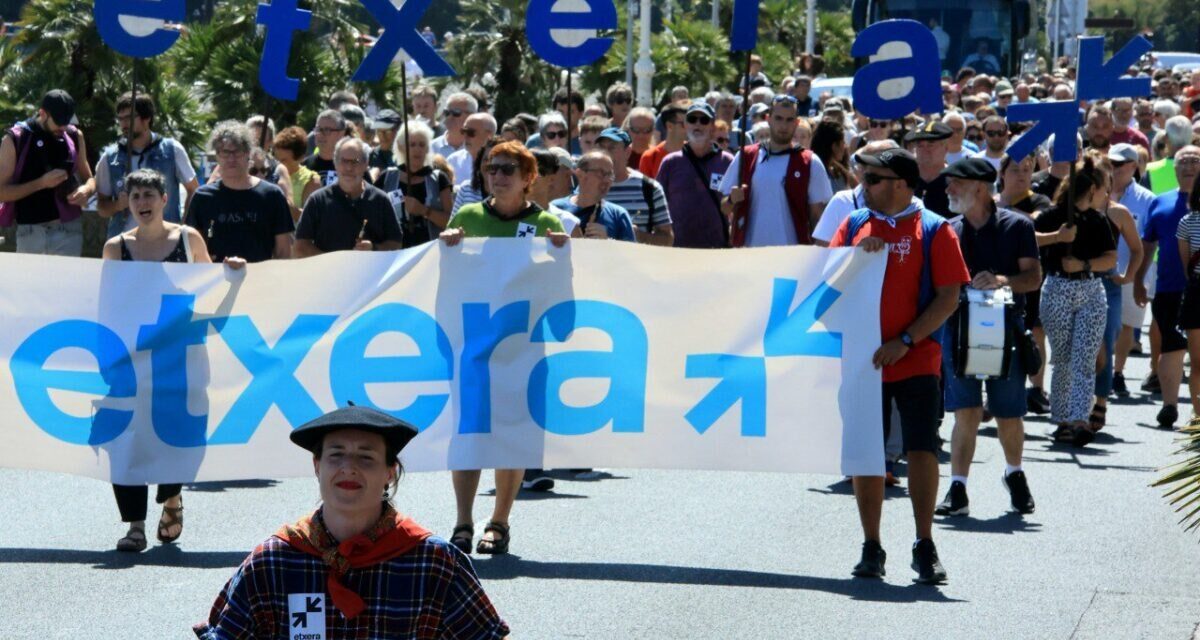135 political prisoners and 66 go out on the street with some permission
- This Saturday, the annual demonstration in favour of Basque political prisoners and prisoners is held in Bilbao. There are fewer and fewer prisoners, but when in 2011 ETA interrupted its armed activity, few would have imagined that, fifteen years later, dozens of prisoners imprisoned for that conflict would remain in prison.
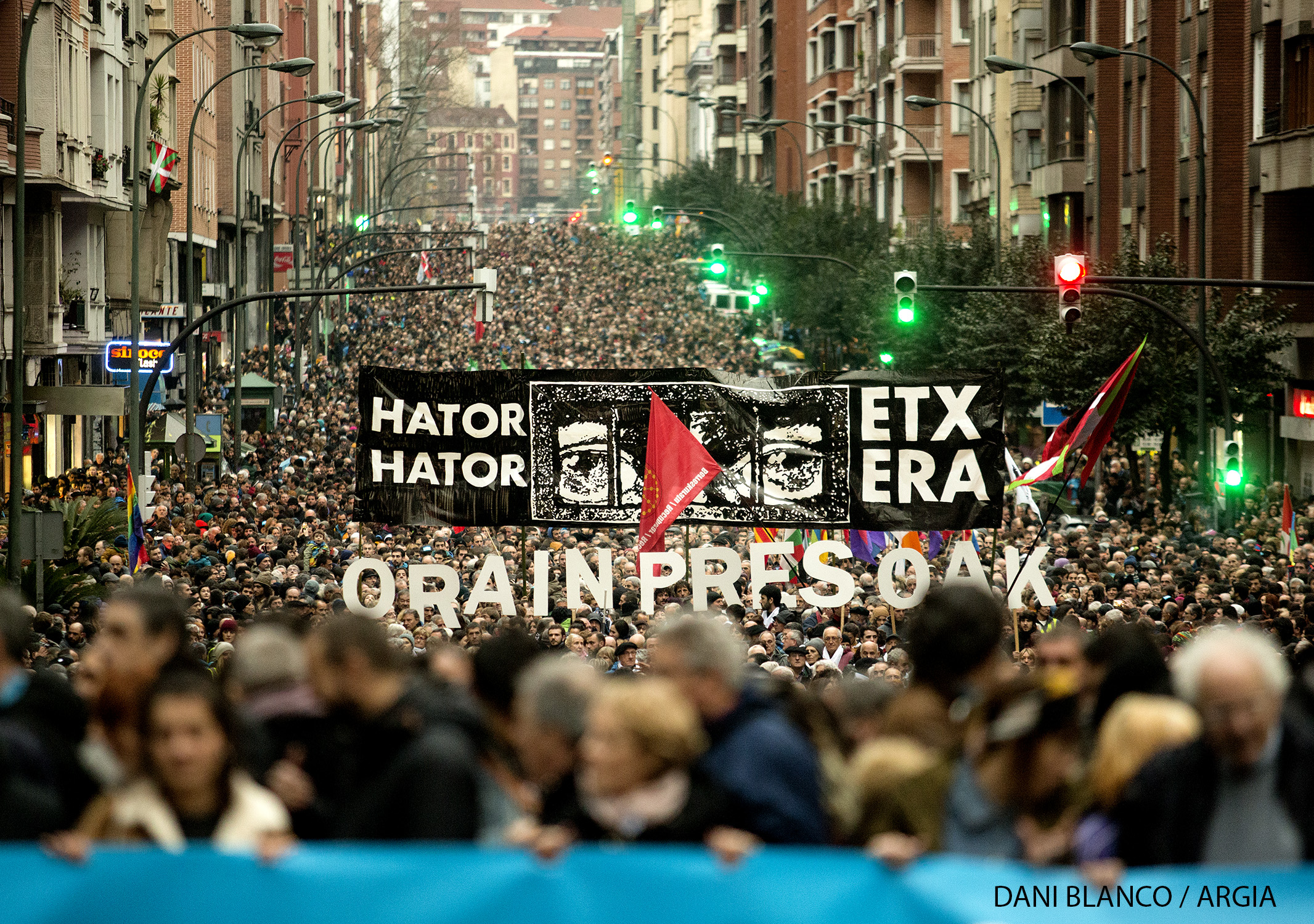
There are currently 135 prisoners linked to what has been called the Basque conflict, 122 of whom are in the Group of Basque Political Prisoners – 17 are women – a group of prisoners that has historically been organized around the Basque National Liberation Movement. To them are the following data provided by Sare: In total, 118 prisoners are in Hegoalde, 45 in Zaballa prison, 25 in Martutene, 12 in Basauri and four in Pamplona. In the French State, in Lannemenburg, there are four others which have not yet been located. The average age of inmates is 50 years and there are 24 inmates aged over 60 years.
Historically, most Basque political prisoners have been in grade 1, the hardest degree in prison. Currently, 77 prisoners are in grade 2, the customary of any prisoner in prison. Of these, 15 are subject to article 100.2 of the Prison Regulations, which means that during the day they may be released from prison for voluntary work, for example. It is, to put it another way, the antecedent of the third grade. The changes could be minor, but this is the X-ray of prisoners in January 2025.
Crossing the third degree barrier
There are currently 41 EPPK prisoners in the third grade, possibly the largest number of prisoners in that grade, of whom 29 are in prison attenuated, for example, with the telematics bracelet.
In the field of Basque prisoners, the Spanish State has for years applied the anti-terrorist logic, making its prison conditions extremely difficult. One of the most demanding measures has been the dispersal and alienation of prisoners, a policy that was already concluded in 2023.
Normal use of the third grade has been the barrier to be overcome subsequently. At this level, the prisoner can spend the day out of prison and in the evening he returns to prison. Weekends are also free. As prisoners are held in Basque prisons, the Treatment Boards have been responsible for changing the status of prisoners, as is the case in any prison.
The Basque Government took over the prison competences in 2021 and made it clear that the prisoners affected by the Euskadi conflict would be for them as the others. As a result, and after verifying that they met the requirements for this, the inmates began to leave in third grade, some of them famous in the Spanish media landscape.
Consequently, the Spanish right took advantage of this media noise of the third grade to fuel the PSOE, among the government agreements of Pedro Sánchez, to symbolize that he was “trapped in the claws of EH Bildu”.
This situation was not and is not easy to manage on the part of the PSOE, but the obstacles of the National Court, after the admission of the third prison grade by the Basque Government, have been made even more complicated by the appeals lodged by the National Court, which has returned to prisons.
Another exception that has been made to Basque prisoners is the prison supervision of the courts. The amendment of Law 5/2003 was not only made for ETA prisoners, but was ultimately amended to combat them. Thus, in 2003, the Central Court of Prison Surveillance of the National High Court (ECHR) was established. Until then, the prison monitoring courts in the territories were responsible for ensuring the rights of prisoners, but from now on the rights of the prisoners there tried, all those related to ETA, would become a matter for the National Court, and in a much stricter manner.
As has been said, if there are currently 41 third-degree prisoners, that means that, for the time being, the obstacles that the National High Court has placed in recent years to obtain such a permit are far outweighed. Thus, Sare stresses that almost half of the prisoners already walk the street in one way or another.
Reduction of sentence in France
In 2018, the Court of Strasbourg considered that Spanish Law 7/2014 was not appropriate because it did not guarantee the fulfilment of the European Union’s mandate. Accordingly, prison sentences carried out for the same offence in any Member State shall be taken into account when the penalty is served in any other Member State.
In other words, the penalties imposed by the Basque prisoners in France must be taken into account and eliminated from the sentence they serve in the Spanish State. Thus, Spain did not fulfil this EU mandate and in September 2024 approved in Congress a change of law that would allow it, with the votes of pp and Vox.
The scandal that followed the complaints of various associations of victims is enormous, but the fact is that this affects some 50 Basque prisoners and that many of them should already be on the streets, once the report of the convictions has been made. Today, it seems that in the latter area there are problems in giving these releases.
Maximum derogation: 40 years in prison
That is the strictest exception that Basque political prisoners still have. In the Spanish Penal Code, the maximum penalty is 30 years ' imprisonment, but by way of exception, in 2003, 40 years ' compliance was established for prisoners convicted of various crimes, especially terrorism. This was done through Law 7/2003, and it would also have to be the full 40 years, without any restrictions. In the past, the penalties were normal for the studies, for good behaviour or, among other things, for the time spent in jail.
For this reason, many sectors of the Euskal Herria field of human rights call for the repeal of this law and, if it is not abandoned, for mechanisms to review penalties to be established. In Europe it is very common, in France, for example, there is a life sentence, but no one complies with it, as the sentence is first revised and the prisoners are released. According to Sare, if this law is not amended, the last prisoner in this group could be released from prison in 2061.
Jar gaitezen 2025erako proposamen politiko gisa, Espainiako Auzitegi Kolonialaren (AN) epai guztiak berrikusten hasteko eta makila bakoitzak bere belari eusteko.
Unionismoarekin lerrokatutako alderdi, sindikatu eta gizarte-erakunde gehienek, eta ez bakarrik horrela... [+]
Next Saturday, 11 January, the Sare citizens' network called for a new demonstration in Bilbao in defence of the rights of Basque prisoners. This is a unique opportunity to move forward on the path of coexistence in our people, after decades of violent confrontation and, even... [+]
Hatortxu Rock jaialdiko 29. edizioa egingo da larunbatean Atarrabian. Sarrerak jada agortuta daude, baina txandak osatzeko laguntza behar da oraindik.
What surprised you the most when you left jail? I've been asked many times in the last year and a half.
See that the streets of Bilbao are full of tourists and dogs with two legs, for example? Or the changes in the political situation? The first one has tired me and annoyed me... [+]









